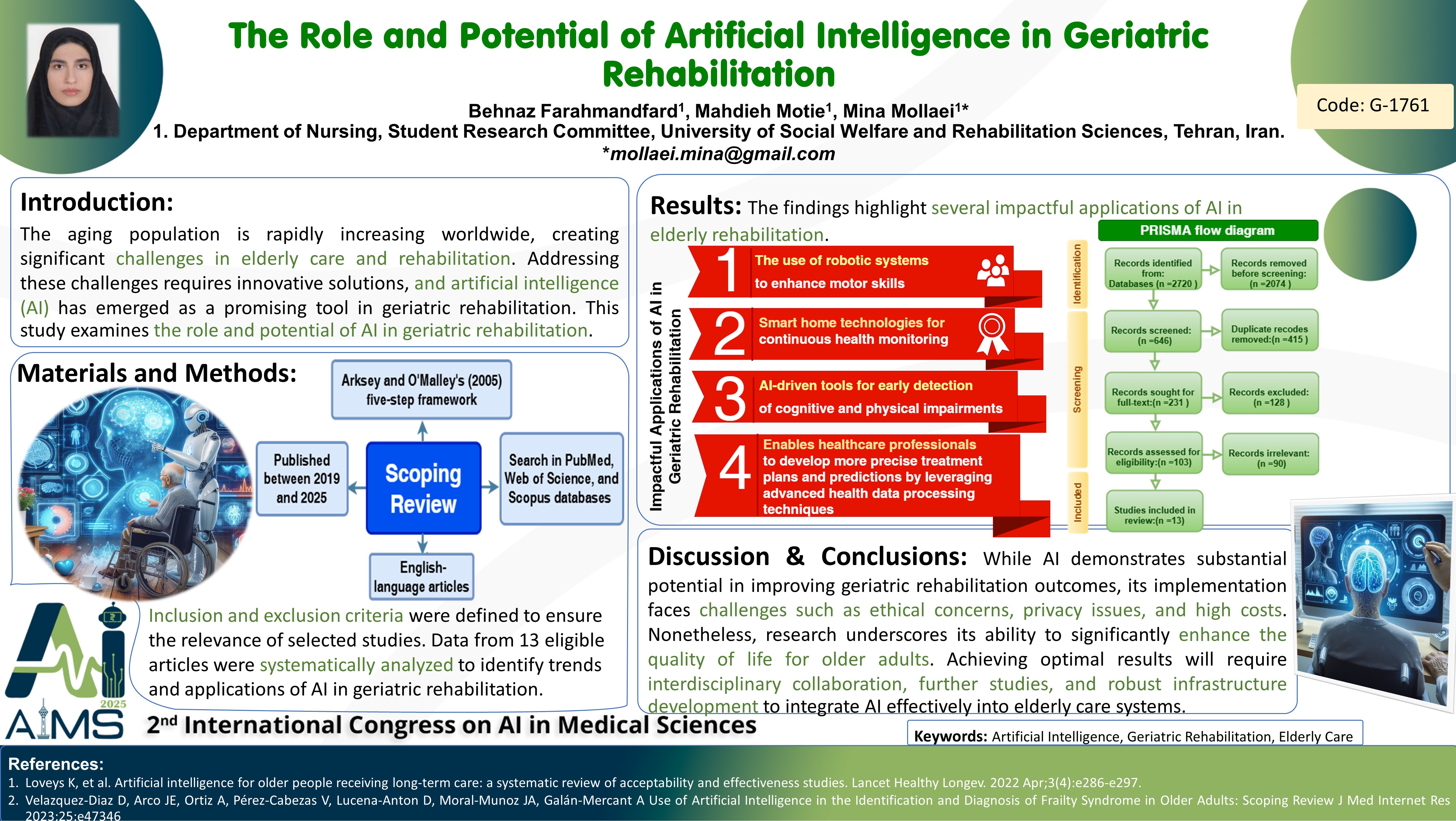The Role and Potential of Artificial Intelligence in Geriatric Rehabilitation
Code: G-1761
Authors: Behnaz Farahmandfard, Mahdieh Motie , Mina Mollaei * ℗
Schedule: Not Scheduled!
Tag: Robotics in Surgery and Care
Download: Download Poster
Abstract:
Abstract
Background: The aging population is rapidly increasing worldwide, particularly in developed nations, creating significant challenges in elderly care and rehabilitation. Addressing these challenges requires innovative solutions, and artificial intelligence (AI) has emerged as a promising tool in geriatric rehabilitation. AI applications have the potential to enhance motor, cognitive, and social abilities among older adults, ultimately improving their recovery process and quality of life. This study examines the potential of AI in geriatric rehabilitation and its impact on the recovery process and quality of life of the elderly. Materials and Methods: This scoping review was conducted using Arksey and O'Malley's(2005) five-step framework. A comprehensive search was performed across PubMed, Web of Science, and Scopus databases for English-language articles published between 2019 and 2023. Inclusion and exclusion criteria were defined to ensure the relevance of selected studies. Data from five eligible articles were systematically analyzed to identify trends and applications of AI in geriatric rehabilitation. Results: The findings highlight several impactful applications of AI in elderly rehabilitation. These include the use of robotic systems to enhance motor skills, smart home technologies for continuous health monitoring, and AI-driven tools for early detection of cognitive and physical impairments. Additionally, AI enables healthcare professionals to develop more precise treatment plans and predictions by leveraging advanced health data processing techniques. Conclusion: While AI demonstrates substantial potential in improving geriatric rehabilitation outcomes, its implementation faces challenges such as ethical concerns, privacy issues, and high costs. Nonetheless, research underscores its ability to significantly enhance the quality of life for older adults. Achieving optimal results will require interdisciplinary collaboration, further studies, and robust infrastructure development to integrate AI effectively into elderly care systems.
Keywords
Artificial Intelligence, Geriatric Rehabilitation, Elderly Care
